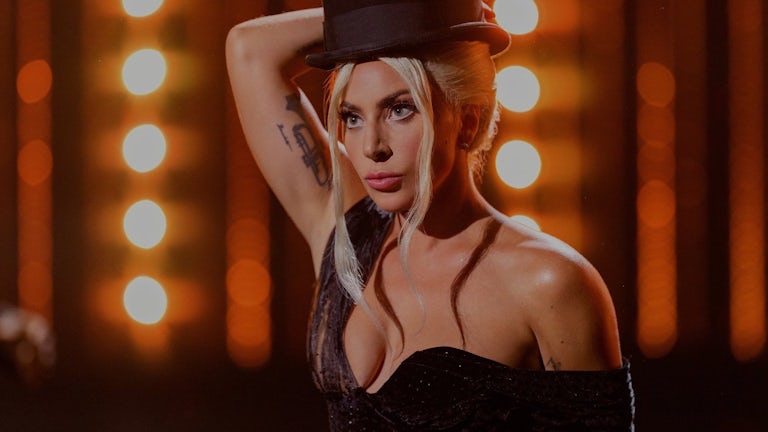Shopping Bag (0)
Shopping bag is empty


Amplify’s executive vice-president of live, Bonnie O’Hara considers the marketing landscape in the US for 2022 and beyond...
Football is a cultural phenomenon, it's big business and it provides a global opportunity for brands across all sectors to reach and resonate with fans all over the world. Like the other big continental tournaments – the Euros and the Copa America – the Africa Cup of Nations is a big deal for supporters. Featuring some of the world's top players, including Premier League icons Mo Salah (pictured) and Sadio Mane, who played a decisive role in Senegal’s victory in the final shootout, it captures the imaginations of fans all over the world.
So after the excitement and attention given to the Euros, why has this year's Afcon not generated the same amount of interest and coverage? While some have spotted the opportunity, such as sponsors TikTok and Umbro, brands and broadcasters are only just waking up the potential of connecting with global football fans at Afcon.
For football fans in the UK, the tournament has got off to a shaky start, with BBC pundit and former England legend Ian Wright commenting that the coverage of the tournament and the issue of player release during the European season has been tinged with racial and degrading attitude.
These double standards when it comes to players being called up for their country show the lack of parity and diversity problem that is endemic in football. It's hard to fathom a journalist publicly asking Harry Kane and co ahead of the Euros whether they'd want to wear the Three Lions shirt and play for their country. Yet when it comes to Afcon it seems to be open season for Premier League players, who justifiably want to turn out for their countries, yet have the UK media bemoaning their absences for their club, with headlines such as "Missing men" becoming commonplace.
Add to this the Fifa president making unacceptable, racially motivated comments at a time where Afcon is on the receiving end of poor coverage and treatment, rather than investing and providing support to one of the most exciting tournaments in football, showcasing the skills of some of the world's greatest players.
There are clear opportunities for brands to buck this trend by stepping up and supporting Afcon, championing a more progressive and less Euro-centric view of what football can be.
The mainstream coverage of this year's tournament has been minimal. Sky has done a poor job at covering Afcon and so far it seems like a poor attempt at being progressive and inclusive. With no pre-match build-up, no half-time analysis and broadcast starting only five minutes before a game, it is evident that little effort has been made in covering the tournament. To make matters worse, up until recently they had only one commentator for games and added selective coverage, skewing a narrative, rather than showcasing the beautiful moments. BBC coverage has been underwhelming, too, with minimal punditry and just 10 (of 52) games broadcast compared with Copa America, which had full coverage.
What's more, the coverage has tended to paint a biased picture of the standard of the football on display. The Premier League has its own questionable incidents each season, from poor officiating decisions to power cuts disrupting matches, yet the double standard between the coverage of such instances in Afcon is palpable, sustaining a negative narrative throughout the tournament.
These mistakes by traditional media have nonetheless opened up an opportunity for new voices and platforms to become the go-to space for football fans to keep up with the tournament. From journalists like Carl Anka to podcasts like Wrighty's House, this new wave of media is bringing much-needed diversity of perspective to the game. Brands can look to work with these partners to modernise and reshape reporting on the game and give tournaments like Afcon the coverage they deserve.
In the build-up to other major tournaments, our screens are usually flooded with tailor-made content in collaboration with their player ambassadors. These ads have become a staple to a point wherein the build-up to these tournaments, fans look forward to seeing what campaigns sponsors have come up with. However the same can't be said about Afcon, and this is a missed opportunity that existing and future sponsors should look to tap into.
Brands can take a leaf out of New Balance's book, which generated content covering its star athlete, Sadio Mane's journey throughout Afcon, showing respect both to the player and the tournament, an act that its competitors have failed to execute. How exciting would it be to see a global Adidas Afcon campaign for example? By committing to the tournament, challenger brands like New Balance and Umbro will certainly reap the rewards of an advantage in the region as well as further afield.
Being less crowded than the likes of the World Cup or the Euros, with the usual-suspect brands having dominated those tournaments for years, Afcon provides an opportunity for smaller or challenger brands to step into football and start to build cultural connections. Brands like TikTok and Binance, relatively "new" and "challengers" in what they offer and represent culturally, have forged partnerships with the Afcon vision of football. Additionally, a brand tapping into Afcon shows that it values the region, an attitude that bodes well with its audience and provides not only an opportunity to increase brand salience but also affinity.
Afcon has a truly global audience. From fans in the 24 competing countries themselves to the global diaspora of those nations, fans of the tournament's star players, to lovers of the beautiful game, its impact is huge. Given the size of interest, it's truly an untapped opportunity for brands to either reach new markets or resonate with footballing communities within existing ones.
Written by Yusuf Ntahilaja, culture executive at Amplify.